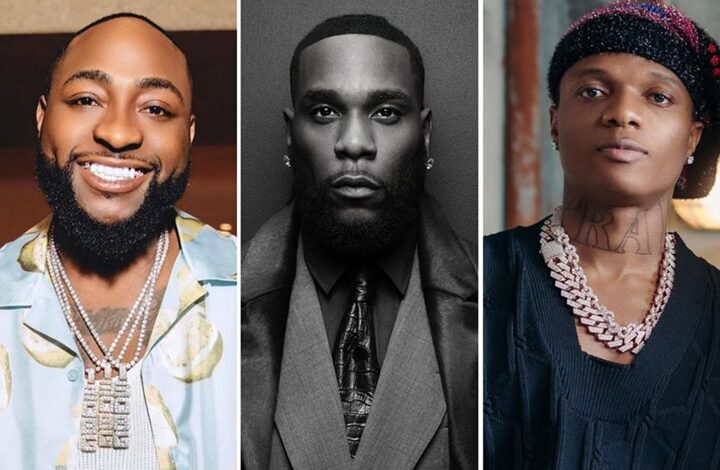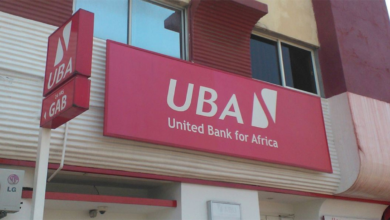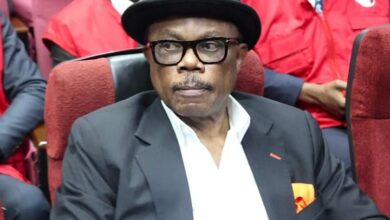A Critique of Nigeria’s Musical Elite: From Personal Success To Social Irresponsibility

The rise of global superstars like Burna Boy, Davido, and Wizkid is a source of immense national pride. They have, undeniably, put Afrobeat on the world map, broken international records, and amassed fortunes that were once unimaginable for African artists.
However, with great wealth comes great responsibility, a responsibility that, critics argue, is being largely abdicated in favor of a culture of obscene consumption, non-charity and senseless squandering.
Conspicuous Consumption Over Meaningless Investments
The core of the critique against them rests on several key points:
The conspicuous consumption over meaningless investments is pure vanity.
The artists’ public personas are meticulously curated around unimaginable wealth. Social media is flooded with videos of new multi-million-dollar mansions, fleets of hyper-cars (each costing hundreds of thousands, if not billions, of Naira), and designer wardrobes.
While there is nothing inherently wrong with enjoying the fruits of one’s labor, the scale and presentation of this consumption become deeply offensive when contrasted with the reality of the average Nigerian and his/her daily struggle.
The critique is not that they shouldn’t be rich, but that their spending highlights a profound lack of perspective. The cost of a single Bugatti Chiron (over $3 million) could do the following and truly make a difference:
- Fund the complete renovation and equipment of dozens of primary healthcare centers.
- Provide four-year university scholarships for thousands of students.
- Fund a sustainable agricultural initiative for an entire local government area.
This choice—a single car over any of these life-altering community projects—is seen not as a personal decision, but as a moral failing and a missed opportunity for genuine legacy-building, better yet making the world a better place.
The theater of “Giving Back” which in most cases is in form of Throwing Money at a crowd vs. Building Systems that will last are two different things.
Perhaps the most criticized aspect of their philanthropy when they do is its performative and unsustainable nature. The act of driving through crowded streets and throwing stacks of Naira into the air is not charity; it is a degrading spectacle that reduces human dignity to a scramble for scraps.
It creates a temporary frenzy but solves nothing. It is philanthropy designed for viral clips and social media engagement, not for lasting impact. It is nauseous to watch and makes you wonder if these individuals don’t have people around them who are normal and can see and advise them accordingly.
True social responsibility must move beyond one-off gestures. It involves the followings:
- Systemic Investment, Building hospitals, schools, or vocational training centers.
- Sustainable Support, Funding scholarship endowments that last for generations, not just paying one term’s fee.
- Strategic Partnerships, working with established NGOs and experts to identify and address critical needs in health, education, and infrastructure.
This kind of giving requires thought, time, and a genuine desire to solve problems—not just to be seen indiscriminately throwing money around.
At the end of the day there seems to be a total Disconnect from a Suffering Base. These artists draw their power, their streams, and their wealth from the very people they seem to ignore in their philanthropic endeavors. Their music resonates with the struggles, joys, and aspirations of everyday Nigerians.
Yet, there is a perceived disconnect when that same artist, who sings about the “hustle” and “suffering and smiling,” appears oblivious to the acute suffering just beyond the gates of their Lagos mansion.
When a fan who struggles to afford data to stream their latest song sees them flaunt a watch worth more than a lifetime of their earnings, it creates a cognitive dissonance. It breeds resentment and fosters the perception that these stars have ascended to a different world, one where the plight of their countrymen is merely a backdrop for their success story and a lack of empathy.
The Possible Defense and the way Forward
It is important to be fair. These artists do engage in charity. Davido’s large donations to orphanages, Wizkid’s support for education, and Burna Boy’s outreach during the COVID-19 pandemic are documented. The criticism is not that they do nothing, but that what they do is disproportionate to their wealth and often lacks the strategic vision required to create real change.
Their defenders might argue and rightfully so:
- “It’s their money; they can spend it how they wish.”
- “They provide jobs and boost the economy.”
- “Their success alone is inspiration enough.”
While there is truth here, it misses the point. Leadership, which they undoubtedly possess, is about more than personal freedom; it’s about vision. They have the unique platform and resources to be catalysts for tangible development. At the end of the day, they do not live alone, they live among others less fortunate.
At the end of the day, a totally new approach is required from these men and women. Burna Boy, Davido, and Wizkid are already legends in music.
The question now is whether they will choose to become legends in nation-building and in the process leave the world a better place than they found it?
The most rewarding thing one can do after “making it” is not to acquire more material goods, but to use that privilege to lift others. The challenge for them is to evolve their understanding of philanthropy from random acts of kindness to strategic acts of leadership and change making.
Instead of a billion-Naira car, imagine the legacy of a fully funded and equipped Burna Boy Children’s Hospital in Port Harcourt. Imagine the Davido Tech Institute in Lagos training the next generation of innovators. Imagine the Wizkid Scholarship Fund educating thousands of doctors and engineers.
Their music moves our bodies, but their action could heal our nation and help usher in a culture of being our neighbors keeper. The critique is, at its heart, a plea for them to match their financial power with the transformative social vision their country desperately needs.
MS-High Chief Christopher Wenegieme
Post Views: 4





